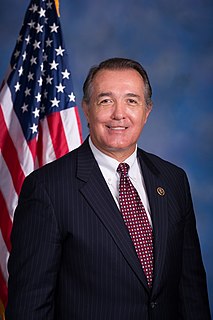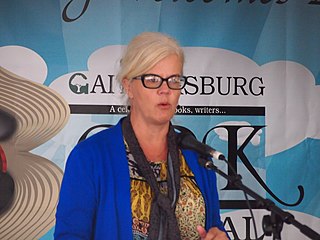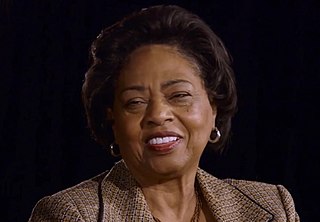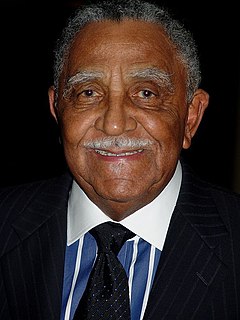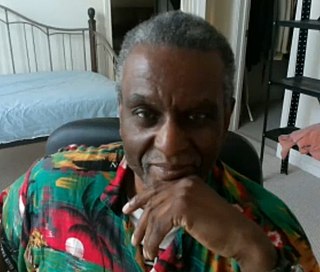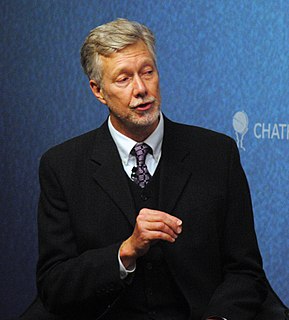A Quote by Thomas Sowell
Liberals have been driven to the desperate expedient of attributing . . .social pathology in today's ghettos to 'a legacy of slavery' even though black children grew up with two parents more often under slavery than today.
Related Quotes
So many white people don't want to talk about race; it's uncomfortable. Many reason that slavery happened more than a century ago, and people alive today had nothing to do with it. But the particulars of these stories, from slavery to segregation to civil rights and mass incarceration, are at the marrow of life in America today.
I've always been interested in history, but they never taught Negro history in the public schools...I don't see how a history of the United States can be written honestly without including the Negro. I didn't [paint] just as a historical thing, but because I believe these things tie up with the Negro today. We don't have a physical slavery, but an economic slavery. If these people, who were so much worse off than the people today, could conquer their slavery, we can certainly do the same thing....I am not a politician. I'm an artist, just trying to do my part to bring this thing about.
We have landowners, small growers. We have people who are holding onto land that was acquired by their families after slavery. They need to produce some of the food we eat, so they can pay the taxes and hold onto the property. Taxes keep going up. We, and by we I mean black people, are rapidly becoming a landless people. Our ancestors, coming out of slavery, acquired more than 15 million acres of land. Today, we're probably down to less than 2 million acres.
The welfare state has done to Black Americans what slavery (and Jim Crow and racism) could not have done. . .break up the black family. Today, just slightly over 30 percent of black kids live in two-parent families. Historically, from the 1870s on. . . 75-90 percent of black kids lived in two-parent families.
As for slavery, there is no need for me to speak of its bad aspects. The only thing requiring explanation is the good side of slavery. I do not mean indirect slavery, the slavery of proletariat; I mean direct slavery, the slavery of the Blacks in Surinam, in Brazil, in the southern regions of North America. Direct slavery is as much the pivot upon which our present-day industrialism turns as are machinery, credit, etc. … Slavery is therefore an economic category of paramount importance.
I truly believe slavery is why, as a by-product, we still have a disproportionate amount of black men incarcerated in America. It is an extension of that legacy, and that's not going to start to diminish until black people have a new sense of themselves that isn't tied to slavery and feeling inferior. I think the church can be instrumental in that, in terms of repentance, reconciliation and just being more embracing of each other - not just on Sunday, but in life generally.
I truly believe slavery is why, as a by-product, we still have a disproportionate amount of black men incarcerated in the USA. It is an extension of that legacy, and that's not going to start to diminish until black people have a new sense of themselves that isn't tied to slavery and feeling inferior. I think the church can be instrumental in that, in terms of repentance, reconciliation and just being more embracing of each other - not just on Sunday, but in life generally.
Adrian Rogers told us as often as he could he took the Bible literally. He illustrated by saying he believed the world was created in six 24-hour days. And he repeated this to make an impression upon us. In private (Jerry Vines was with us), I asked Rogers what he did with the slavery passages of the New Testament. Did he take them literally? He paused and said, 'Well, I believe slavery is a much-maligned institution. If we had slavery today, we would not have this welfare mess.'
The black masses want not to be shrunk from as though they are plague-ridden. They want not to be walled up in slums, in the ghettos, like animals. They want to live in an open, free society where they can walk with their heads up, like men, and women! Few white people realize that many black people today dislike and avoid spending more time than they must about white people. This 'integration' image, as it is popularly interpreted, has millions of vain, self-exalted white people convinced that black people want to sleep in bed with them - and that's a lie!
In the era of slavery, you could be a so-called Afro-Cuban one day and a so-called Black American the next day, or vice versa. I mean there was all this back and forth, and there was a lot of opposition in Black America to slavery in Cuba in particular, because slavery in Cuba lasted until the 1880s.
We call 'Slavery is wrong' a moral truth because there is a specific history of theoretical investigation of a particular kind of slavery. We discussed it for centuries in metaphysical, economic, biological, and philosophical terms; we listened to all the arguments pro and con, we read all the testimonies of slaves and witnesses, and we decided. Though this 'we" is not everybody on earth, or even most people, who've never thought about slavery much.
History is a story like any other, but black history is a story so devoid of logic that it frustrates the young reader. The young readers in my house, told of slavery and segregation, asked in disbelief, 'What? Why?' We - the parents of black children, the parents of all children - still need to tell that story.

